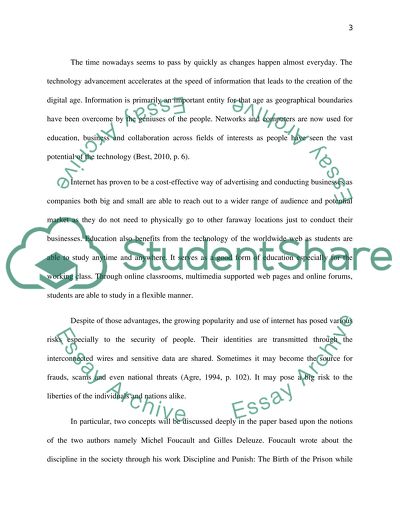Cite this document
(“Notion of Disciplinary Societies and Societies of Control Essay”, n.d.)
Notion of Disciplinary Societies and Societies of Control Essay. Retrieved from https://studentshare.org/journalism-communication/1449472-compare-and-contrast-two-examples-of-surveillance
Notion of Disciplinary Societies and Societies of Control Essay. Retrieved from https://studentshare.org/journalism-communication/1449472-compare-and-contrast-two-examples-of-surveillance
(Notion of Disciplinary Societies and Societies of Control Essay)
Notion of Disciplinary Societies and Societies of Control Essay. https://studentshare.org/journalism-communication/1449472-compare-and-contrast-two-examples-of-surveillance.
Notion of Disciplinary Societies and Societies of Control Essay. https://studentshare.org/journalism-communication/1449472-compare-and-contrast-two-examples-of-surveillance.
“Notion of Disciplinary Societies and Societies of Control Essay”, n.d. https://studentshare.org/journalism-communication/1449472-compare-and-contrast-two-examples-of-surveillance.


